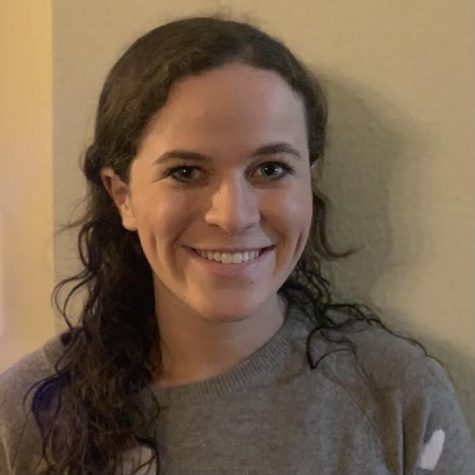New York Times bestselling author Tea Obreht was the keynote speaker for the 25th annual Highland Park Literary Festival on Feb. 25.
This year, the student keynote assembly served as a virtual pep rally with online google meet workshop sessions taught by professionals of the literary world.
Obreht was born in Belgrade, in the former Yugoslavia, and grew up in Cyprus and Egypt before eventually immigrating to the United States at 12-years-old.
Her debut novel, “The Tiger’s Wife,” earned her a spot in the won the 2011 Orange Prize for Fiction and was a 2011 National Book Award Finalist and an international bestseller. She became a National Book Foundation 5 Under 35 honoree in 2010 and was named by The New Yorker as one of the twenty best American fiction writers under forty.
In her presentation, Obreht talked about how she got her start as an author, and where she drew inspiration from.
In 2010, the year before her first book, Obreht went vampire hunting in her former home of Belgrade, former Yugoslavia. This vampire myth tied her to her home and led her to write the myth into a literacy perspective for Harper Magazine with a lighthearted tone of the story.
Obreht explained how a few setbacks did not stop her from traveling to Croatia to investigate vampires and develop her new story. With her grandmother advising her to give up on the investigation and her mother breaking her ankle weeks before the trip, she did not give up her dream. The trip was an appropriate literary start, and she found local stories in Croatia through her many adventures.
“I was investigating vampires due to a man’s livestock being hunted as there were maybe some creatures in this mysterious forest,” Obreht said. “Almost all my subjects denied anything about vampire war that they didn’t know, but then they thought it was a myth, but then they thought they were haunted.”
Vampires are such a big part of her culture due to the rich Pagan beliefs, as the Balkans have a very unique position of having been on the thresholds of Pasantian and the Ottoman world.
“She explained her travels which weren’t that important to the story, but she mentioned that she grew up thinking that vampires were terrifying instead of teenage heartthrobs books that we as students do now,” freshman Daisy Murphy said. “She built up curiosity in the vampire hunting story even though she didn’t find anything.”
Obreht looked for patterns and repetition in fiction through her travels in Croatia. Almost all the people denied knowing anything about vampire lore, even after a family friend took her to see a man who farmed livestock and was mauled by an unseen force. However, when she did not discover evidence of vampires, she found other stories to write.
“The Tiger’s Wife” was Obreht’s debut novel published in 2011 and won the Orange Prize for Fiction for the same year. This story features a young doctor’s relationship with her grandfather and the stories he tells her. Her grandfather retells stories about the ‘deathless man’ who doesn’t die, regardless of the danger he faces, and a deaf-mute girl from his childhood village who befriends a tiger that has escaped from a nearby zoo.
She continued her presentation by going into detail about the style of writing she uses, and how she writes stories.
Obreht’s writing steers towards the theme of reality versus supernatural and thinks about the shape of the story, pacing, characters, tradition and language. Through her books, the stories correlate between the story’s structure and emotional resonance.
“I wanted the readers to receive my stories in a specific way of wanting to be creeped out, destabilized, uncertain of where it was going,” Obreht said. “Storytelling is a game of delivering and withholding, and stories hold powerful currency, and can transport us into someone else’s shoes.”
Obreht comes up with all of her unique stories originally by herself and spends a lot of time listening to stories from podcasts and obscure books.
“I realized that a lot of my work deals with the same five themes, which is common for most writers,” Obreht said. “I set my stories in a range of different stories and environments, and they all come back to home and search for a meaning.”
During her presentation, she told a true story that her former neighbor told her about a man and his wife getting ready for bed and having an encounter with a mouse roaming in a guitar.
After telling the story, Obreht explained that she tricked her listeners into being scared by providing an easy tone, and could have quickly told it in simple terms, but she chose to add suspense.
“I found this very interesting because I learned that you can control a reader’s thoughts through your detail and tone,” senior Parker Owen said.
Obreht uses a unique way to plan her writing, and instead of a standard approach, she uses a spontaneous state of creation. She finds a designated time for writing in her day and does not focus on word count or page numbers.
“I think about a scene, or what goal I want to finish,” Obreht said. “Quick drafts of a scene or anything that might help, do your thing and let it grow within the time of your writing.”
Obreht sees that what a writer goes through to get into a story is rarely the same door that a reader needs to access to get into the story. She is usually motivated by finding the reader’s door and ends up with a version of a story that can invite another person in.




